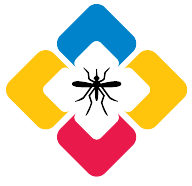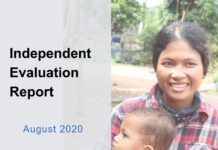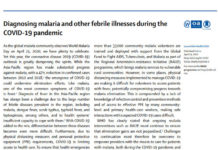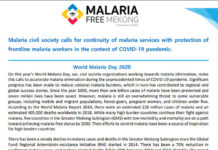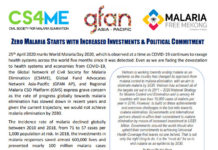CSO platform, GMS collected RAI2E implementation challenges at the community level due to preventive measures to curb the COVID-19 infection from the CSO partners of five GMS countries. Below implementation, challenges reflected the situation as of 9th April 2020. The overall challenges of RAI2E implementation include:
- No or inadequate knowledge about COVID-19 and supply of sanitizers for community-level volunteers and project staff who are in the front line
- Confusion and fears among community malaria volunteers when patients with fever attended to them as part of their routine malaria care in their communities
- CSOs are still implementing project activities having a different strategy for project implementation due to travel restriction and government announcement on social distancing
- M&E staff cannot implement the field data collection activity which could affect the routine malaria surveillance
- Disruption stakeholders coordination (which usually happened through physical meeting) and delayed in malaria activities decision at various levels of the health system including training
- Disruption of malaria activities on the international borders, and putting the communities at risk those relying on these border malaria services
- Commodity shortages are foreseen immediately or at least in next quarter if the in-country supply chain is disrupted and restrictions imposed to any part of these supply chains
CSO platform urged the following measures to continue the malaria services to the communities.
- Protecting front-line malaria workers and field project staff at the community level with an adequate supply of medical masks, hand sanitizer, IEC/BCC materials, and applying feasible communication strategies to keep everyone connected and informed.
- Ensuring no disruptions in malaria commodity supply chain throughout all levels – Governments need to ensure the travel restrictions, import delays, clearances are exempted to all malaria commodities. The donor (and PR) need to provide coordination with the government to strategize the most feasible supply mechanisms down to the community level.
- Provision of the universal coverage of malaria services to those vulnerable populations (hard to reach areas, regardless of legal status in particular geography) considering human and gender rights amidst of COVID-19 challenges by Government
- Ensure project monitoring activities to collect malaria surveillance data through existing online tools or phone call
